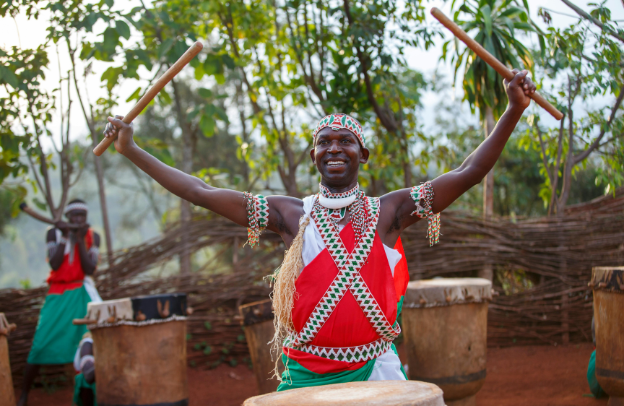How Group Tourism Can Serve as a Launchpad for Diaspora-Led Social and Cultural Initiatives

In recent years, group travel has emerged as a powerful tool for African diaspora communities seeking to reconnect with their roots, foster cultural understanding, and initiate impactful social projects. These collective journeys transcend mere sightseeing; they serve as catalysts for deeper engagement with heritage, community building, and the launch of diaspora-led initiatives that resonate both at home and abroad.
Learn How to Leverage Your Story through our Story To Asset Framework.
Rediscovering Roots Through Collective Journeys
Group travel offers African diaspora members a structured and supportive environment to explore their ancestral homelands. These trips often include visits to historical sites, cultural immersion experiences, and opportunities to engage with local communities.
Such experiences not only provide a sense of belonging but also lay the groundwork for future collaborations and initiatives.
For instance, programs like Birthright Africa have been instrumental in facilitating these connections. Inspired by similar initiatives for other diaspora communities, Birthright Africa offers young people of African descent the chance to explore their heritage through curated trips to African countries.
See also Supporting Research and Documentation of the African Diaspora – WeDiasporan Volunteer Series 17/21
These experiences often ignite a passion for cultural preservation and social entrepreneurship among participants.
Here are three effective ways to get more out of group travel by rediscovering roots through collective journeys, particularly for the African diaspora:
1. Integrate Ancestral Heritage Experiences
Design group itineraries that include visits to culturally and historically significant sites such as slave castles, ancestral villages, and heritage museums. Include storytelling, rituals, and local interactions that deepen the emotional and spiritual connection to the land and history. These experiences foster personal reflection and collective healing.
2. Include Facilitated Dialogue and Reflection Spaces
Incorporate group discussions, journaling sessions, and guided conversations led by cultural facilitators or historians. These spaces allow participants to process their experiences together, share personal stories, and explore the emotional layers of identity, belonging, and legacy—transforming travel into a journey of self-discovery and community bonding.
3. Encourage Post-Trip Engagement and Collaboration
Create opportunities for travelers to stay connected and take action after the trip. This could include forming alumni networks, launching diaspora-led projects, or supporting local initiatives encountered during the journey. Turning inspiration into impact ensures that the rediscovery of roots leads to sustained connection and meaningful contribution.
Fostering Cultural Exchange and Mutual Understanding
Group travel also serves as a platform for cultural exchange, allowing diaspora members to share their experiences and learn from local communities. This mutual understanding can lead to the development of collaborative projects that address shared challenges and celebrate common heritage.
An example of this is the Multaka project in Berlin, where refugees and migrants serve as museum guides, sharing their cultural perspectives with visitors.
Multaka: Museum as Meeting Point is an intercultural initiative launched in 2015 by four history museums in Berlin, created in collaboration with Arabic- and Persian-speaking migrants and refugees. “Multaka,” meaning “meeting point” in Arabic, was envisioned as a dynamic platform for cultural and educational exchange—bridging communities by inviting refugees to serve as museum guides and storytellers, and fostering dialogue between newcomers and other museum visitors.
This initiative not only empowers the guides but also enriches the cultural experiences of tourists, fostering a deeper appreciation for diverse histories and narratives.
Launching Diaspora-Led Social and Cultural Initiatives
The connections and insights gained through group travel often inspire participants to initiate projects that benefit both their diaspora communities and their ancestral homelands. These initiatives can range from cultural preservation efforts to social entrepreneurship ventures.
For example, Tastemakers Africa, founded by Cherae Robinson, offers curated travel experiences that connect diaspora travelers with African creatives and entrepreneurs. These trips not only provide economic opportunities for local communities but also empower diaspora members to contribute meaningfully to the cultural and economic development of their ancestral regions.
See also Diaspora Group Tours: A Collaborative Pathway to Empowerment and Cultural Reclamation
Here are three key benefits of diaspora-led social and cultural initiatives to local communities:
1. Economic Empowerment and Job Creation
Diaspora-led initiatives often bring investment, skills, and market access to local communities. Whether through travel, entrepreneurship, or philanthropy, these programs can support local businesses, create employment opportunities, and stimulate sustainable economic growth.
2. Cultural Preservation and Revitalization
By highlighting and celebrating local heritage, arts, and traditions, diaspora-led cultural initiatives help preserve intangible cultural assets. These programs often fund or organize festivals, workshops, and heritage site restorations, reinforcing community pride and intergenerational knowledge transfer.
3. Knowledge Transfer and Capacity Building
Diaspora members frequently return with valuable expertise and global experience. Their initiatives can offer mentorship, training, and access to new ideas and technologies—empowering local communities with tools to address social challenges and pursue long-term development goals.
Building Sustainable Partnerships and Networks
Group travel facilitates the formation of networks that extend beyond the duration of the trip. Participants often maintain connections with fellow travelers and local contacts, leading to ongoing collaborations and support for various initiatives. These sustained relationships are crucial for the success and longevity of diaspora-led projects.
Here are three effective ways to build sustainable partnerships and networks through group travel, especially in the context of African diaspora engagement:
1. Collaborate with Local Communities and Entrepreneurs
Partnering with local guides, artisans, business owners, and cultural institutions ensures that travel is mutually beneficial. Co-creating experiences—such as workshops, cultural performances, or site tours—fosters trust, generates income for local stakeholders, and deepens diaspora travelers’ connection to the community.
See also The Power of Co-Creation in Business: Unlocking Your Success Strategies
These collaborations often evolve into long-term partnerships in sectors like agriculture, crafts, hospitality, or tech.
2. Facilitate Knowledge Exchange and Capacity Building
Group travel can be structured to include educational sessions, skills-sharing workshops, and networking forums. These engagements allow diaspora participants and locals to exchange expertise in areas such as entrepreneurship, education, sustainability, or creative industries. When both sides contribute and learn, relationships are more likely to grow into lasting, impactful networks.
3. Establish Follow-Up Mechanisms for Continued Engagement
To turn travel encounters into lasting partnerships, organizers should create platforms for ongoing communication—such as alumni networks, virtual meetups, or collaborative online projects. These follow-up mechanisms keep connections alive, encourage joint ventures, and support the development of initiatives sparked during the tour, ensuring the impact extends well beyond the journey itself.
Moreover, organizations like Life Beyond Tourism emphasize the importance of intercultural dialogue and sustainable travel practices. By promoting responsible travel and cultural exchange, such organizations help ensure that travel benefits both visitors and host communities in meaningful and lasting ways.
Conclusion
Group travel has proven to be a valuable avenue for African diaspora communities to reconnect with their heritage, foster cultural understanding, and initiate impactful social and cultural projects.
By facilitating immersive experiences and building lasting networks, these collective journeys empower individuals to contribute to the preservation and development of their ancestral homelands while enriching their own identities and communities.
Learn How to Leverage Your Story through our Story To Asset Framework.





